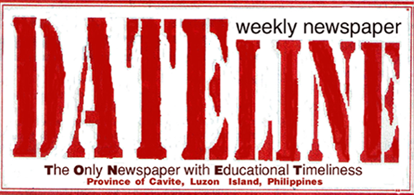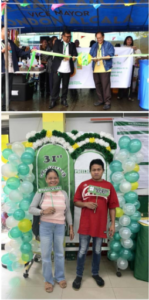
Calamba City (PIA) — “Smartphones are both a blessing and a curse,” a Philippine Information Agency (PIA) information officer told more than 500 youth participants at a West Philippine Sea Symposium on March 20.
PIA Laguna Information Center coordinator Christopher Hedreyda used the mobile phones’ duality to drive his point across.
He told young leaders, students, campus journalists, and Sangguniang Kabataan (SK) officials that smartphones, while offering unparalleled communication and access to information, can also be a source of distraction and misinformation.
“Smartphones allow us to stay connected with our loved ones and can easily give us access to information, but they can also be addictive, making us lose track of time while scrolling through TikTok, Facebook, X, and other platforms,” Hedreyda said.
He noted social media’s significant influence on the Philippine media landscape, serving as a primary news source for many Filipinos. While offering quick information dissemination, it also carries a high risk of spreading inaccurate information.
Hedreyda urged the youth to be vigilant and verify sources before sharing content. “Before believing what we see and read, fact-checking and verifying the content is a must,” he said.
He emphasized the importance of media literacy in developing critical thinking skills for online content consumption, reminding participants of their responsibility to prevent the spread of misinformation.
Hedreyda clarified the term “fake news,” stating that it’s often misused. “News flow goes through a lot of fact-checking, verification, vetting, and even grammar and sentence construction that are being considered before releasing it to different platforms.” He suggested “misinformation, disinformation, or malinformation” as more accurate terms for untruthful information.
He introduced the SPOT method—Source, Purpose, Ownership, and Time—to help identify misleading content. He also warned against red flags such as newly created accounts with few followers, spelling errors on websites, poor-quality content, excessive posting, and lack of public engagement.
Hedreyda encouraged responsible sharing and commenting on social media, emphasizing that while freedom of speech is a constitutional right, it has limitations. “It is not wrong to comment and share personal opinions because it is enshrined in our constitution and freedom of speech. But there is a limitation with the freedom of speech, limiting not to destroy the reputation of individuals, institutions, and also with government initiatives and programs,” he said.
He directed participants to reputable government websites and social media channels, including the Philippine Communication Office, the Philippine Information Agency, and PIA Calabarzon, for verified information.
For West Philippine Sea updates, he recommended West Philippine Sea News and the Philippine Coast Guard. He also cited the National Youth Commission and the National Youth Commission in Calabarzon for youth-related programs.
The PIA underscored the vital role of media literacy in promoting government transparency regarding the West Philippine Sea and empowering youth to share online content responsibly. (KA-PIA4A)



